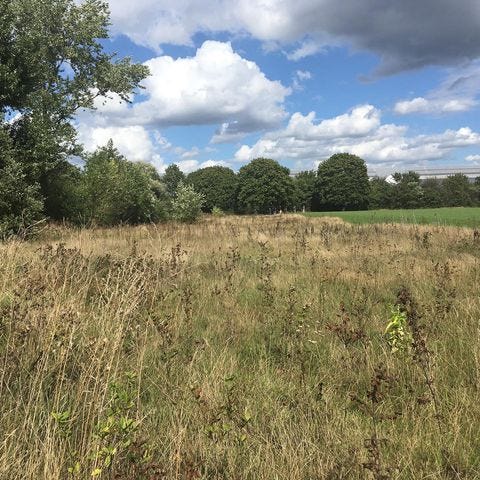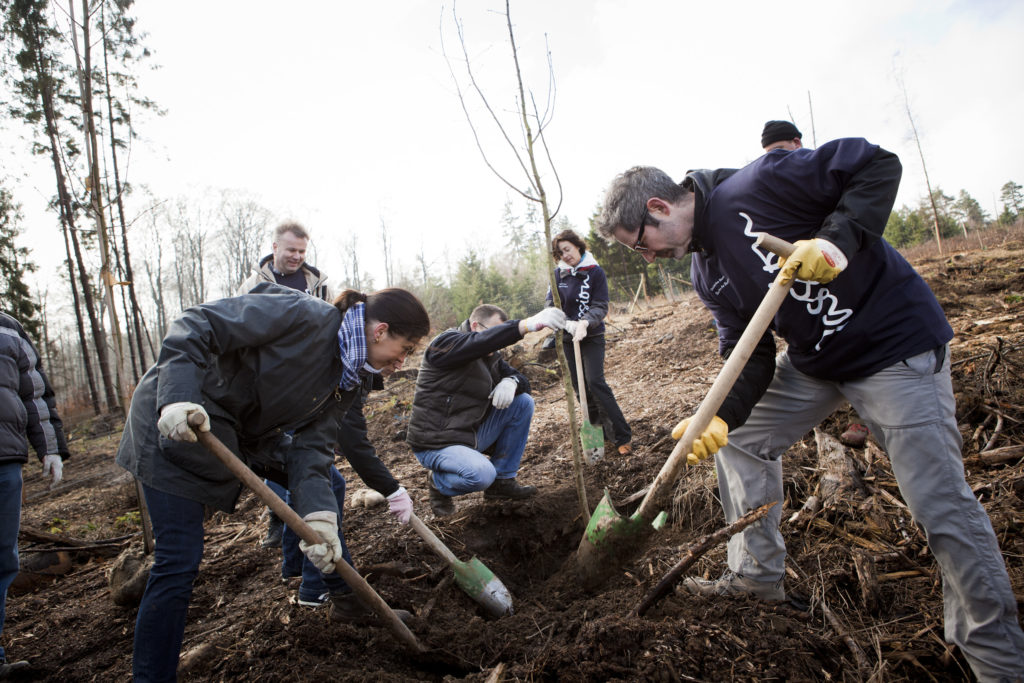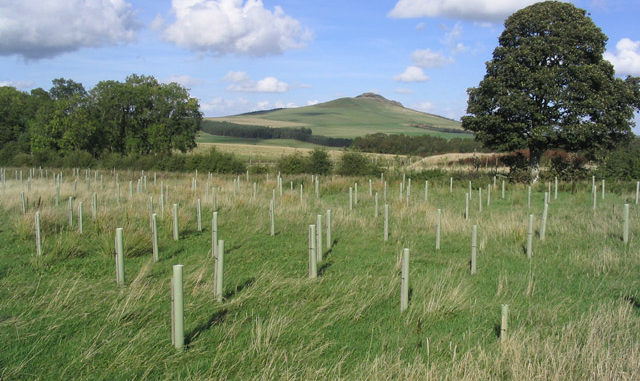
Governments and non-profits have killed over 50% of the trees planted in the past 20 years, now corporations are killing them too.
Originally published in at ESG University
Did you know half the trees planted by non profits and city governments die within the first year? That’s billions of dollars in environmental money, countless hours and resources wasted. And in some cases, there’s even Environmental Awards given to non-profits killing well over 50% of their trees planted too.
This past June, the MIT Technology Review released a report that maybe should be looked at as a model for everything wrong with the carbon credit system here in the ESG Economy, and quite frankly, the United States of America. Europe too.
The study highlights the case of the Massachusetts Audubon Society, a 125-year-old conservation non-profit that protects some 38,000 acres of land. Click here for the study.
Back in 2015, Mass Audubon informed the California Air Resources Board that it could log 9,700 acres of the land it owned, but that it would not do so, and therefore qualified to receive some 600,000 carbon credits from the state of California.
The short version of the story is this. Mass Audubon persuaded an appointed government agency to pay them for not doing something they were not going to do.
The little-bit-longer version is when this story gets interesting. Mass Audubon got their carbon credits, then turned around and sold those very same carbon credits for about $6 million to oil and gas companies, allowing them to increase their carbon emissions.

That is an example of the ESG Economy and Issues. How appointed leaders can change the marketplace with Environmental Social Governance decisions that impact the supply chain.
Actually, legally, and on the surface, this checks out. Only here’s what the MIT study found. And it gets even more salacious for the coming ESG Police.
Mass Audubon never cut down nor had any intention of ever cutting the near 10,000 acres of forest. This means the carbon credits they received weren’t actually offsetting anything and also putting a group of oil and gas companies in trouble with the coming ESG Police.
This is just one example of non-profits abusing conservation programs, write-off resources and environmental monies. How this money is recycled and used is a whole separate ESG University discussion, and it will happen in coming weeks.
There are many more example, which ESG University will get to in coming weeks, but this example demonstrates our government has been lost with environmental management for over a century.
Let’s look at the one shining jewel of our environment – Yellowstone Park. Instead of a thriving example of American ESG policy, Yellowstone has been a century of our own National Park Service destroying the environment with policy.
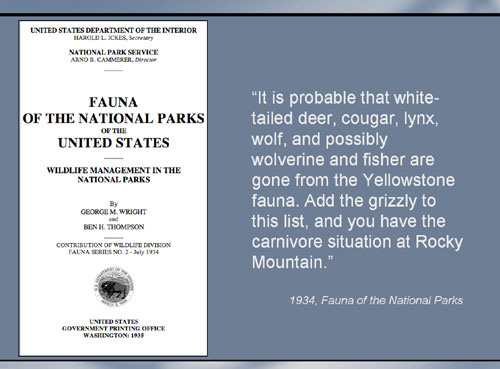
Alston Chase wrote several books on this after years of investigating Yellowstone and it’s policies. What he found was a century of mismanagement that has destroyed the flora and fauna.
For example, Chase exposes government reports that documents the holocaust of wildlife perpetrated by Yellowstone’s policies (grizzlies, black bears, wolves, elk, bison, beavers, and others).
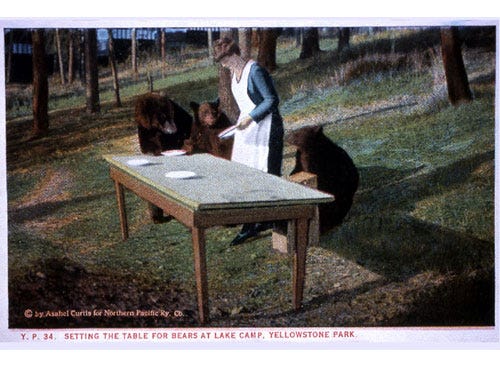
He also explores the counter-intuitive value of controlled forest fires in order to grow forests as well as documents Yellowstone’s institutionalized discrimination of scientists and enshrinement of a police/ranger force. A formula still being used and abused today.
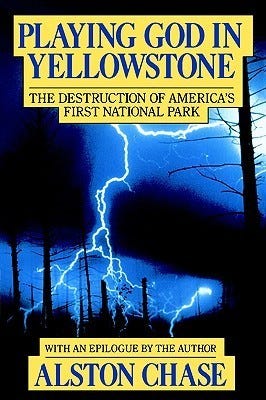
Alston Chase, Playing God in Yellowstone: The Destruction of America’s First National Park, 1986.
Tree-planting has become an increasingly popular way to offset carbon, with companies and governments around the world. Many believe it’s driven by social media and the idea nature will do all the work. But climate critics disagree and have decades of evidence to back up their claims.
Across the pond, here’s a Tree Planting program run by a government in England. Check out the Instagram clip from Vice, a popular investigative brand, reporting on a tree planting program.
Click on link for video report
6,000 trees were planted at this site in England, but more than 90 percent have now died.
Environmentalists claim councils are wasting public money with failed tree planting schemes, in the wrong places and at the wrong time of year, all so they’re “seen to be doing something” about the climate crisis.
@sophiasgaler reports.
Another European example involves Coca Cola and the Hackney Council. This partnership was with the charity Trees for Cities, which was funded by Coca Cola’s company Honest Organic. When their partnership planted trees there was all kinds of hoopla and media coverage before and during. The after however, takes investigative journalists and local activists to report the failings on social media.
.
From the Instagram post above:
This is what 4,000 dead trees looks like. @treesforcities planted an ‘edible forest’ on Hackney Marshes earlier this year. This was part of a carbon offsetting scheme and aimed to create a community asset… Now radio silence because it’s completely failed. Poor planting too late in the year, with no mulch and look what’s predictably happened, a carbon positive impact – digging 4,000 holes, driving equipment to the site, volunteer travel, growing the trees etc And NOONES talking about it??? The only positives are that the area is not being mowed and dragonflies are using the dead trees as perches. I wonder if they’ll say it was the hot summer or maybe coronavirus’ fault? #greenwashing #carbonoffsetting #edibleforest #trees #treeplanting #hackneymarshes
Even the trees that survive are being misrepresented as tree planting takes decades to benefit the environment. There is a growing movement called “Greenwashing” and more and more non-profits and companies are using trees as a way to look ESG good. When the reality is they are creating a whole new set of problems for the fossil fuel industry and abusing tax dollars all while contributing to the spiking inflation.
As Alston Chase put it, “when the search for truth is confused with political advocacy, the pursuit of knowledge is reduced to the quest for power.”
About The Crude Life
Award winning interviewer and broadcast journalist Jason Spiess and Content Correspondents engage with the industry’s best thinkers, writers, politicians, business leaders, scientists, entertainers, community leaders, cafe owners and other newsmakers in one-on-one interviews and round table discussions.
The Crude Life has been broadcasting on radio stations since 2012 and posts all updates and interviews on The Crude Life Social Media Network.
Everyday your story is being told by someone. Who is telling your story? Who are you telling your story to?
#thecrudelife promotes a culture of inclusion and respect through interviews, content creation, live events and partnerships that educate, enrich, and empower people to create a positive social environment for all, regardless of age, race, religion, sexual orientation, or physical or intellectual ability.
Sponsors, Music and Other Show Notes

Studio Sponsor: The Industrial Forest
The Industrial Forest is a network of environmentally minded and socially conscious businesses that are using industrial innovations to build a network of sustainable forests across the United States.
Weekly Sponsor: Stephen Heins, The Practical Environmentalist
Historically, Heins has been a writer on subjects ranging from broadband and the US electricity grid, to environmental, energy and regulatory topics.
Heins is also a vocal advocate of the Internet of Everything, free trade, and global issues affecting the third of our planet that still lives in abject poverty.
Heins is troubled by the Carbon Tax, Cap & Trade, Carbon Offsets and Carbon Credits, because he questions their efficacy in solving the climate problem, are too gamable by rent seekers, and are fraught with unreliable accounting.
Heins worries that climate and other environmental reporting in the US and Europe has become too politicized, ignores the essential role carbon-based energy continues to play in the lives of billions, demonizes the promise and practicality of Nuclear Energy and cheerleads for renewable energy sources that cannot solve the real world problems of scarcity and poverty.

Weekly Sponsor: Great American Mining Co
Great American Mining monetizes wasted, stranded and undervalued gas throughout the oil and gas industry by using it as a power generation source for bitcoin mining. We bring the market and our expertise to the molecule. Our solutions make producers more efficient and profitable while helping to reduce flaring and venting throughout the oil and gas value chain.

Join Podcasters from across the world and all walks of life as they unite to bring civil solutions to life and liberty.

Studio Email and Inbox Sponsor: To Be Announced

Featured Music: Alma Cook
For guest, band or show topic requests, email studio@thecrudelife.com
Spread the word. Support the industry. Share the energy.

